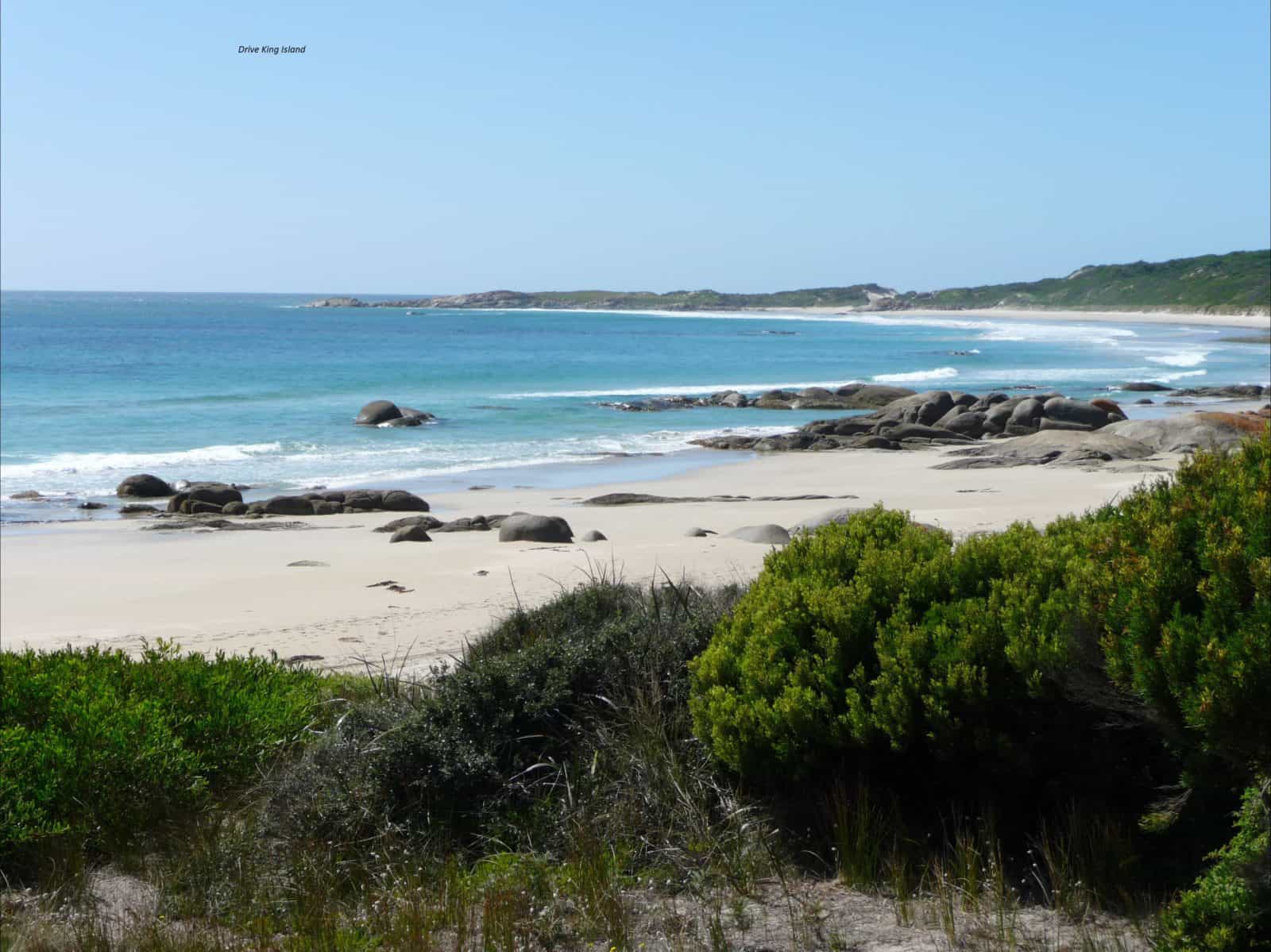
King Island lies north-west of Tasmania in the path of the Roaring Forties, the ever-present westerlies that circle the world’s southern latitudes. It’s an island of long, empty beaches and clean, fresh air, of offshore reefs, rocky coasts, dairy farms, lighthouses and shipwrecks.
It is renowned for award-winning creamy cheeses, succulent beef produced on lush pastures, and fresh seafood.
King Islanders have a special relationship with the sea. The island’s kelpies gather bull kelp tossed ashore by storms, while cray fishermen and abalone divers harvest rich catches from beneath the surface. On King Island’s flat farmlands, beef and dairy cattle shelter behind thick ti-tree hedges – the lush grass is the secret to the succulent local beef, rich cream and wonderful hand-made cheeses. You can visit the King Island Dairies shop next to the cheese factory, taste the cheeses and select your favourites to take home. Wallabies and peacocks abound – be careful driving at dusk. Shearwater rookeries pepper tussocky coastal hillsides, and you may sight albatrosses and mighty sea eagles riding the updraughts.
Australia’s worst maritime disaster occurred here in 1845, when the Cataraqui grounded. Today, Cape Wickham lighthouse – the tallest lighthouse in the southern hemisphere – guides mariners safely into Bass Strait but you can still explore the island’s most important historic sites on the Shipwreck Trail.
Reid Rocks, 12 kilometres offshore, is home to a major breeding colony of Australian fur seals. King Island’s wildlife, both native and exotic, can sometimes surprise – yes, that was a pheasant you saw in the roadside hedge. And yes, it is a paddock of grazing turkeys. But the most pleasant surprise is the warm King Island welcome – in Currie’s motel and friendly pub, in Grassy’s local store and craft shop, in cottages and bed and breakfast and from everyone you pass on country roads.
